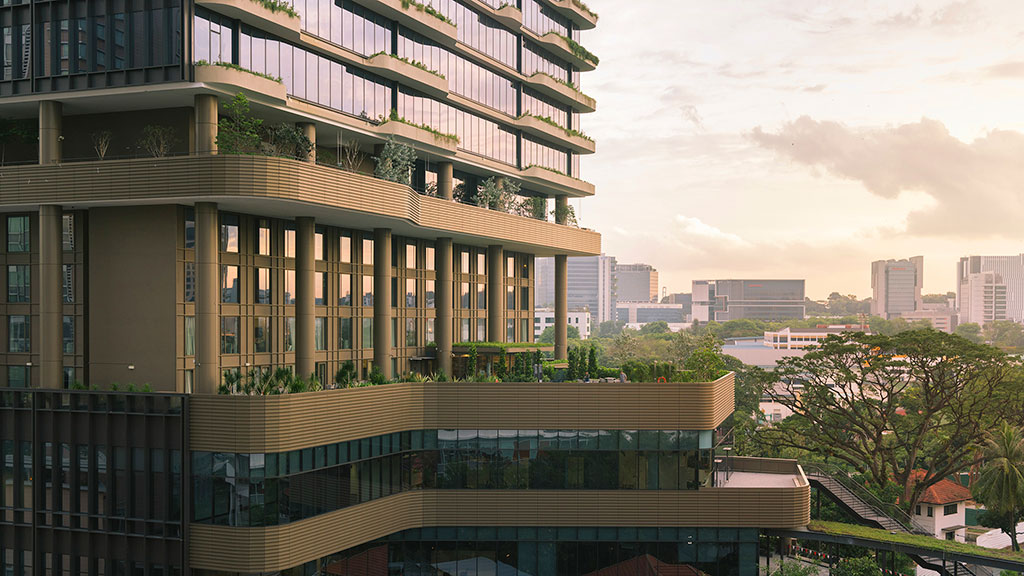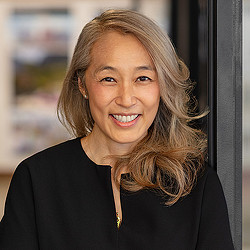Singapore’s Recovery Is Challenged by High Housing Costs
May 16, 2024 | By Sofia Song, Stella Donovan, and Jacqueline Scherr
Gensler’s latest cities research, “The Return of the City: A 2024 Retrospective of the City Pulse,” presents a closer look at six different cities around the world: Austin, London, Mexico City, New York, San Francisco, and Singapore. We pulled these cities from the headlines to learn deeper lessons about how they navigated the public health crisis and understand what the future may hold. This blog explores Singapore, a city that had previously weathered a pandemic.
Singapore proved resilient in minimizing the impact of the COVID-19 pandemic, aided by one of the world’s largest fiscal responses to the crisis. However, the pandemic took emotional tolls on the city, which were largely attributed to the stress of lockdowns. Additionally, widespread infections in dormitories for migrant workers revealed how much heavy industry relied on low-cost labor. More than half of the 300,000 migrant workers living in Singapore’s dormitories contracted COVID-19. Consumer-facing sectors such as retail, food services, and tourism were badly impacted as well. Yet, many jobs for locals were saved by the Jobs Support Scheme, a government program that rescued some 165,000 jobs. By 2023, skyrocketing home prices and rents were being fueled by surging demand due to the reopening of the economy and the return of foreign workers. Today, there’s a robust market for office space and workers have largely returned to the office.
Roughly two-thirds of Singapore respondents feel their city provides a great experience.
On virtually every question related to city living, Singapore’s ratings have declined since the 2021 study. Fewer people are satisfied with their living situation (61% in 2023 compared to 69% in 2021), and fewer feel that their city offers a great experience (65% in 2023 compared to 68% in 2021). Additionally, fewer Singapore respondents feel that their city has clean air (66% in 2023 compared to 71% in 2021). Nearly half (40%) of Singapore respondents believe their city is losing its cultural heritage, a number that’s remained stable since 2021.
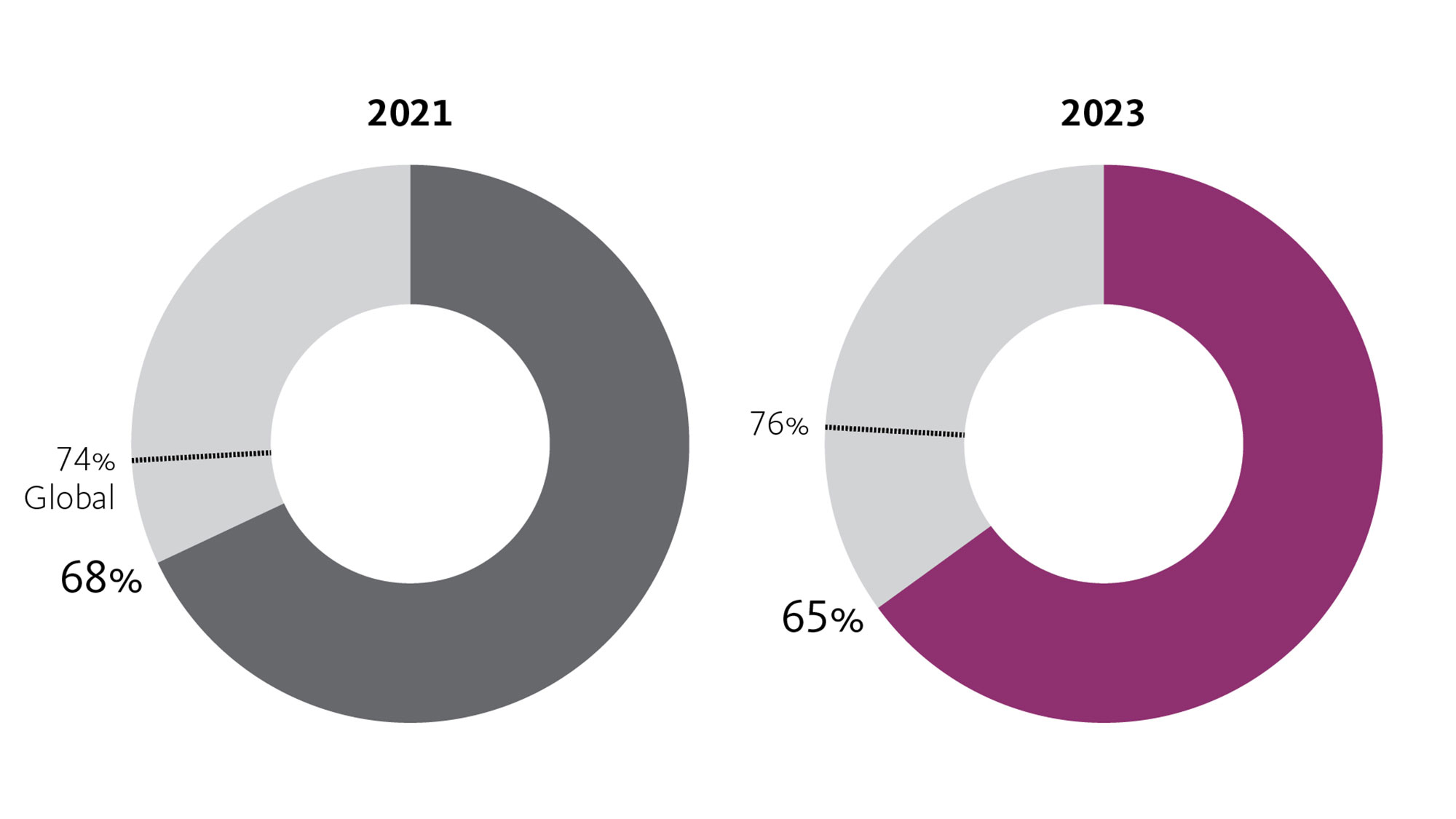
Career and employment opportunities are getting better over time.
Public perceptions about career advancement (28% in 2023 compared to 22% in 2021) and employment opportunities (32% in 2023 compared to 24% in 2021) have improved since the last study, but less than one-third of respondents believe that those conditions are improving. While fewer people are considering a move to a different part of the city due to the flexibility presented by remote work (42% in 2023 compared to 45% in 2021), a slightly higher number of people want to move out of the city entirely for that reason (41% in 2023 compared to 40% in 2021). A majority (70%) of Singapore respondents report that they are satisfied with their city as a place to work.
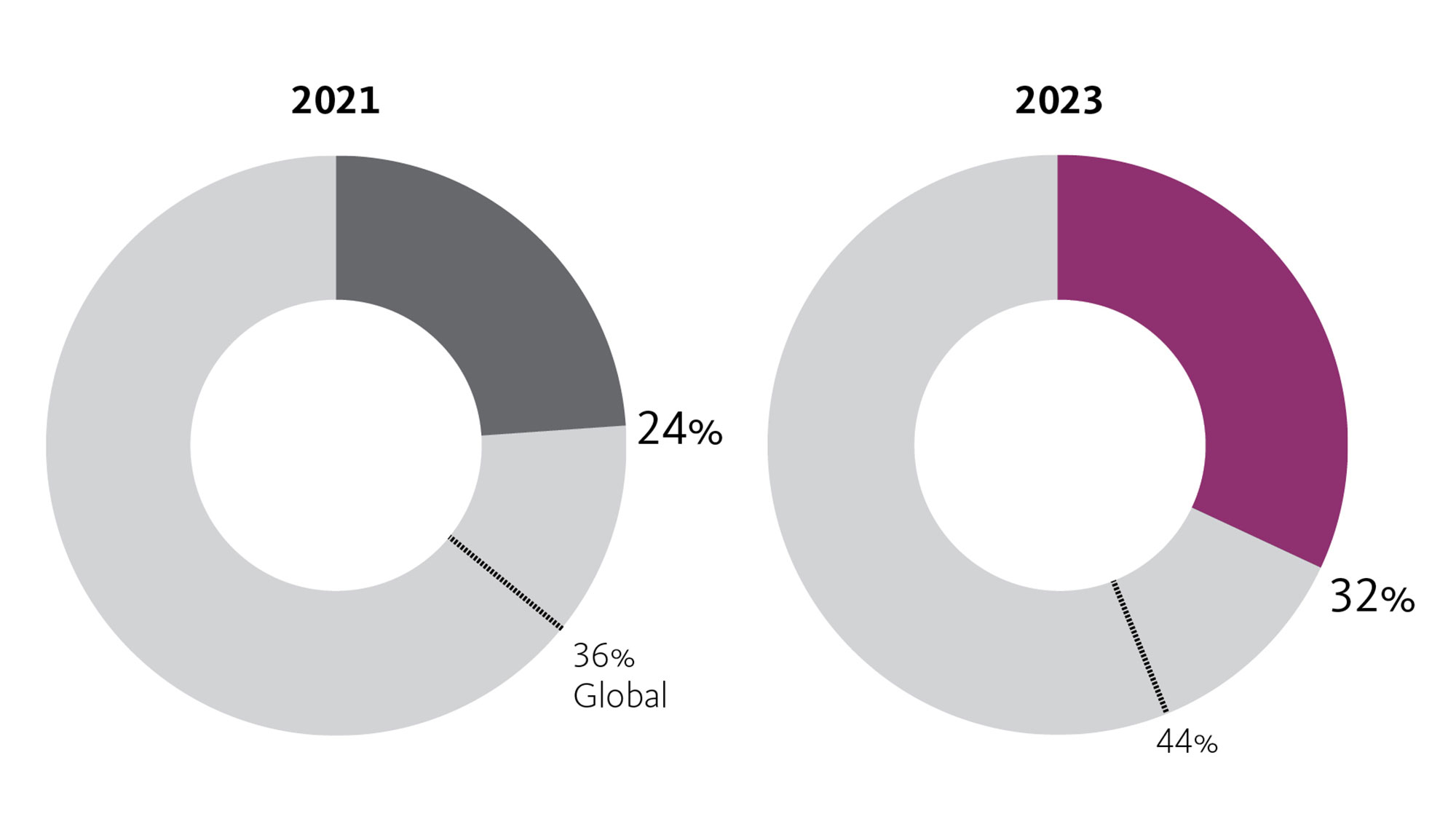
Two out of three Singapore respondents feel that their neighborhoods are becoming less affordable.
A majority (64%) of Singapore’s respondents say that living in their neighborhood is not as affordable as it was a year ago, compared to 48% in 2021. This increase is one of the largest in our study. Additionally, 38% of Singapore residents say that they are living paycheck to paycheck (a 3% increase from 2021).
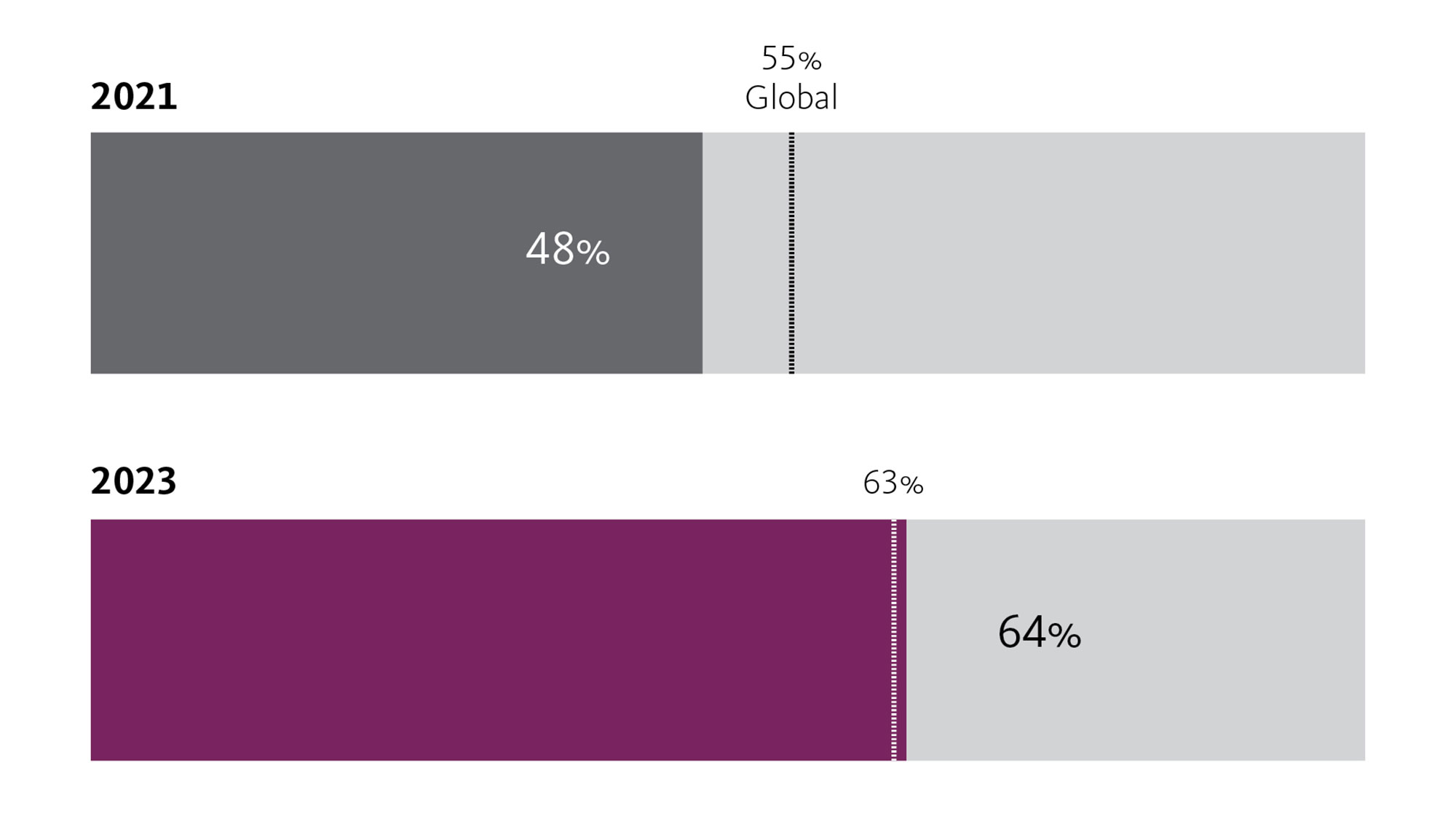
Seven out of 10 Singapore respondents feel that Singapore’s downtown core provides a great experience.
Overall, 70% of respondents feel that Singapore’s downtown core provides a great experience — a 5% decrease from 2021. When asked what physical improvements they most want to see, people identified adding more green space (42%), reducing traffic congestion (38%), and providing more places to dine and socialize (32%).
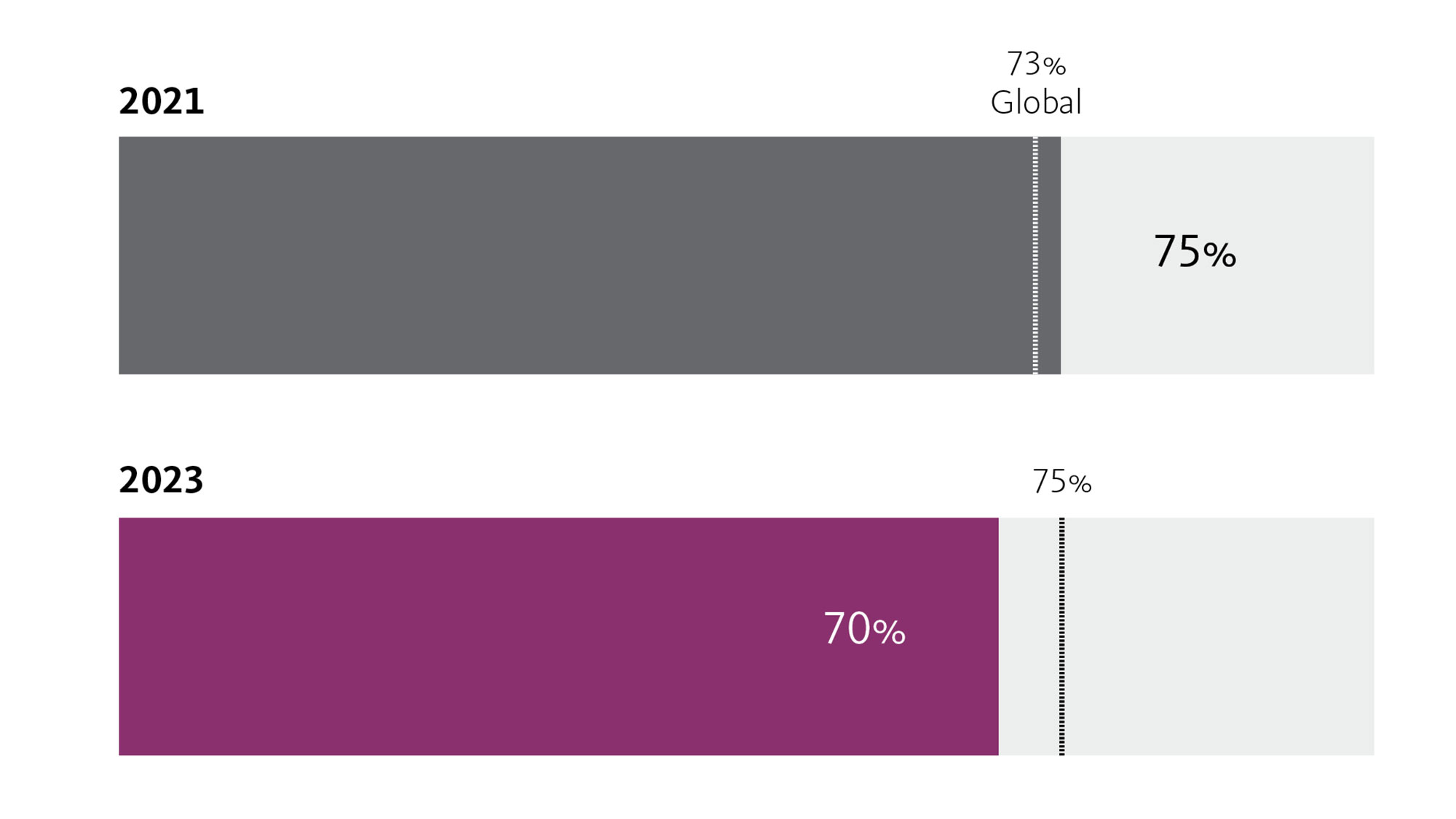
Despite rising expenses, Singapore is undeniably a global gateway that provides safety, livability, and a vibrant culture.
In 2023, trade-dependent economies like Singapore felt the effects of global disruption, resulting in greater housing costs and higher core inflation. Recovery began in the second half of the year with the resumption of air travel and expansion in services and tourism. Singapore’s population swelled by 5% as 162,000 foreign workers returned to the city-state between June 2022 and June 2023. In addition, international tourist arrivals more than doubled in 2023 compared to the previous year, surging to 13.6 million.
“Singapore’s quality of life and endless opportunities speak for themselves,” said Angela Spathonis, managing director of Gensler Singapore. “Plus, seeing how swiftly Singapore has bounced back from the pandemic, with its proactive measures and top-notch healthcare system, investing here isn’t just about property; it’s about being part of a thriving, resilient, and rejuvenated community in a city that never fails to impress.”
For media inquiries, email .
